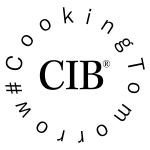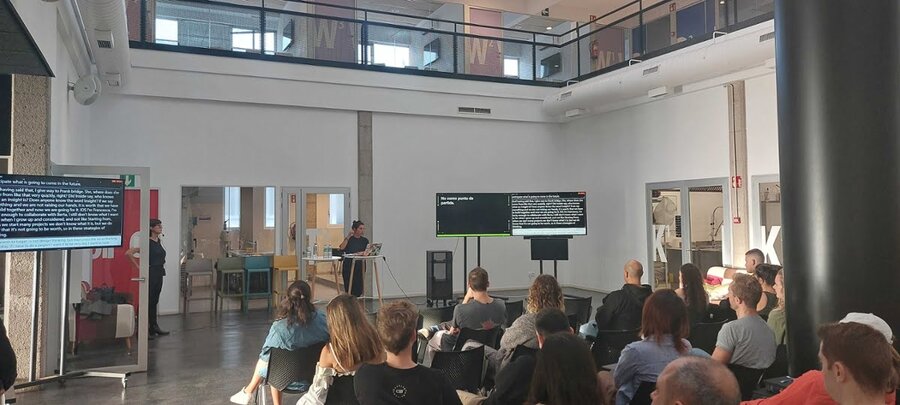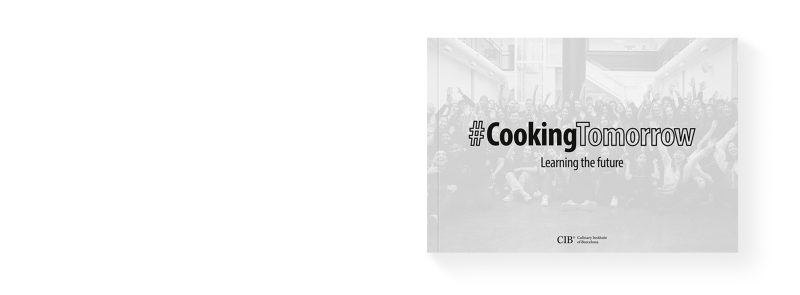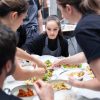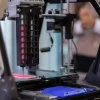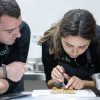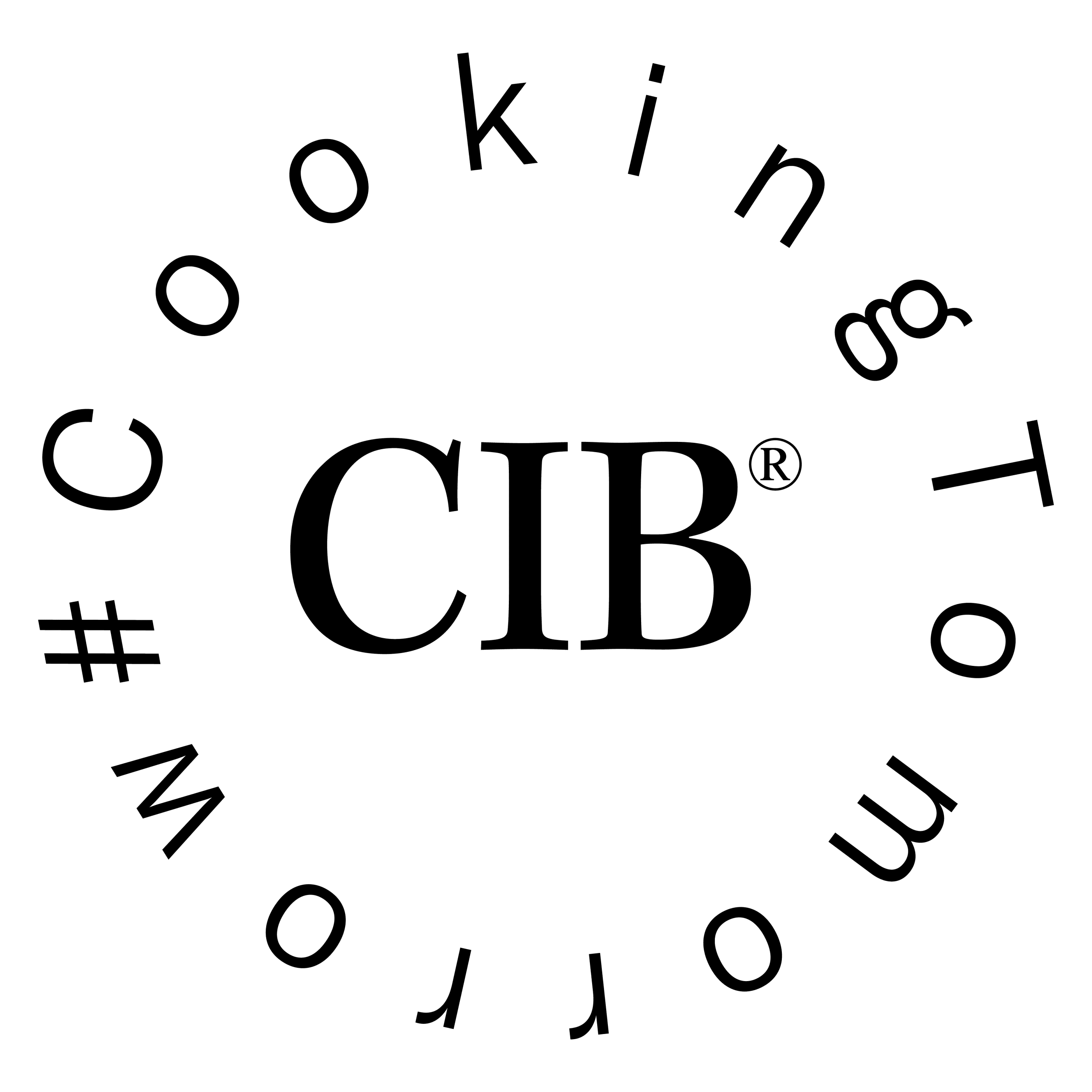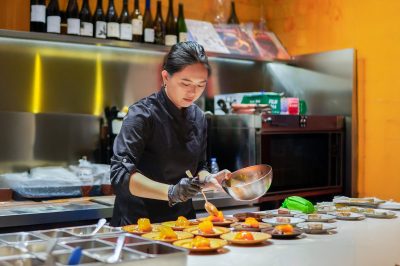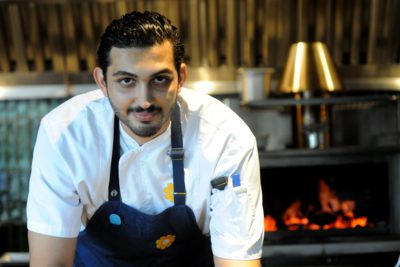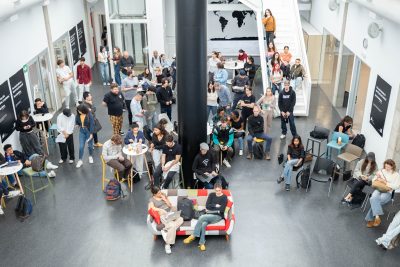When we reflect on the future of food, it is essential we use methodologies that allow us to explore and imagine alternatives, assess the risks and benefits and identify opportunities in order to make decisions in the present. Future thinking helps us stimulate a dialogue on the future and make strategic decisions. It is important to understand the complexity, ambiguity, and uncertainty of the system in order to deal with change.
During this future-oriented session at the Culinary Institute of Barcelona, we took a deeper look into future thinking methodologies. We then applied these methodologies as part of a workshop where we imagined and designed scenarios around the future of meat, one of the biggest challenges within the food system.
How to think about the future and spot trends
Today’s speakers are Francesca Tur, founder of Tendencias.tv, who was named by Forbes in 2021 as one of the best futurists in Spain, and Berta Segura founder of the agency DMentes, a company specialized in trend analysis and ethnography.
Let’s ask them a question! 👇
How do you spot trends?Berta: In order to spot trends, you first need to have a good understanding of what is happening today and this requires effort. It involves reading many articles, reports, media, etc. and looking at things from a critical standpoint, because observation will allow you to see the differences, what is going on, how people behave, etc. As an analyst, you have to have your eyes wide open.
Francesca: I would also add that it involves continuous effort, creativity and research. It does not follow an office schedule and for that reason you need to stop, take perspective and start connecting the dots that will allow you to see beyond the day to day.
To what extent do you follow trends, and how do you stay true to your identity?Francesca: It depends on how you want to position yourself, and whether you want to be part of the main economic system, make the business work for you, make a profit and grow, or if you want to do it in a more innovative or artistic way, in which they will come looking for you because of who you are.
Round table: The future of the meat and dairy industry
This round table features experts from different fields. First, we have Imma Puigcorbé, co-owner of Mas el Lladré, a small sustainable farm specializing in dairy and meat products. Next, we have Fracesco Riccobono from Novameat, a global pioneering company in the development of the first plant-based, 3D-printed meat. And last but not least, Pere Carrió Llucìa, chef at GatBlau Restaurant, named the best vegetarian restaurant in Spain.
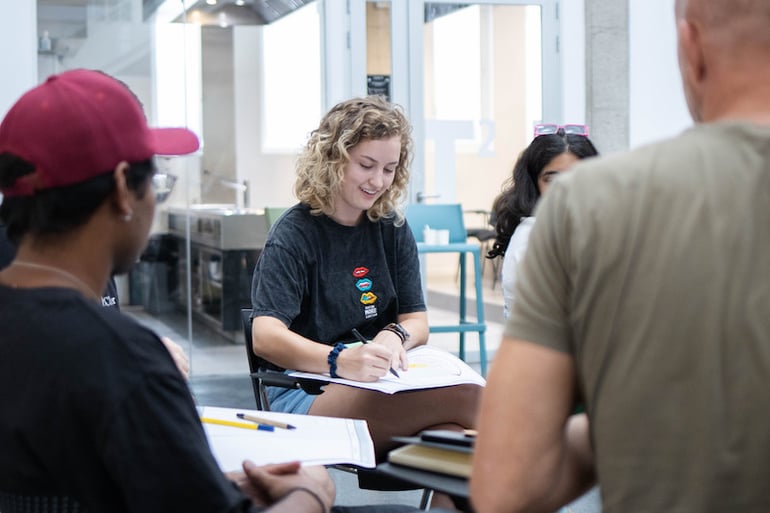
Patricia Jurado moderated the round table and kicked off the questions.
What are the most important considerations in sustainable livestock farming?
Imma Puigcorbé: Sustainable livestock farming is linked to the land. If we take animals out of their natural habitat, we have to produce meat using unnatural products, such as animal feed. We are disrupting these animals’ natural cycle and the environment, and moving ever closer towards industrialization. So this natural cycle ceases to be efficient, and as such, it ceases to be sustainable, which also makes the meat unsustainable.
Pere Carrió: Organic livestock farming is the future. It uses less meat, it is more eco-friendly and has a positive impact on the world. We work with producers who farm organically and we buy small whole animals so we can use every part of the animal, spending as little as possible. When we started we were faced with many difficulties, because socially sustainability was not a very well-established concept. Today what we try to do is to move from what is socially acceptable to what is ecologically necessary.
Move from what is socially acceptable to what is ecologically necessary. – Pere Carrió
Do you think that the consumption of plant-based meat will become more democratic?
Francesco: Yes, although there is still a lot of room for improvement in terms of taste and price. I believe it is the future and that it will become a serious contender for the meat industry. If the big chefs start using these products, it will make them much more democratic, and faster.
Imma: Plant-based products also have to be sustainable. I am all for them as long as they use locally-sourced ingredients. If not, they are not sustainable at all. We have to be critical about what we buy and eat.
Do you see Michelin restaurants using alternative proteins?
Pere: As long as they say what the plant-based meat is made of, I think it’s fine. We have to know what we’re eating and offer customers maximum transparency no matter how small the product is. We have to offer an alternative that links the product back to its tradition and context.
What is your opinion on lab-grown meat?
Imma: This meat is grown from animal cells in a laboratory, so we need the animals as well. It also requires a lot of energy. So I don’t see it as a solution to climate impact.
Pere: I think that we have to ruralize the land, not industrialize it further. Animals belong to the land and they have huge value in that regard.
Francesco: Cultured meat is not trying to replace sustainable meat, but rather industrialized meat that is produced on a large scale. So I do think it is a good option for this reason. But there is still a long way to go until we have the technology to make this product available to everyone.
What do you think will be the most disruptive changes to impact the future of meat and the industry?
Pere: I hope that small farms will survive. Let’s wait and see what happens because the trend is that fewer people are producing much more. I think that in the future, both options will coexist: plant-based and animal meat, but with the lack of water, intensive livestock farming will have to be reduced.
Imma: Small livestock will survive, and macro farms are investing a lot of money in vegetable protein. Excuse my french, but they don’t give a sh*t about the land. All they care about is business, so I don’t think meat will ever really disappear.
What recommendations would you give future chefs for the coming years?
Francesco: I would tell them to focus on the quality of the products and be aware of the changes still to come, because when plant-based options are being consumed at the same rate as meat every day I think there will be a transition to plant-based consumption. Remember that our target is flexitarians who want to reduce their meat consumption.
Pere: They need to take advantage of all the resources and work with local products and use their creativity to make the most of the entire animal. Not many people can effect change and enjoy the process like a professional chef can!
Imma: Food accounts for 12% of all CO2 emissions, and we always focus on food, but we should also focus on other sectors, such as transport, which pollutes twice that much. I would tell them to focus on working with products that are local and help mitigate climate change.
Workshop: imagining and designing the future of the meat and dairy industry
After deepening our understanding of the future of meat at the round table, we used this framework to conduct a workshop where we applied foresight methodologies to co-create desirable futures. The workshop was done in groups, and the objective was to transport ourselves to the year 2050 and reinvent the hamburger of the future. Time is of the essence, as in just one hour, students have to solve a series of challenges with only five minutes rest in between.
Once we had the answers to all the questions, we built a kind of puzzle to develop our final product. To do this, the students focused on different questions, such as what will the ingredients be like? What will the experience be like? And what kinds of payment methods will exist? The results were truly spectacular!
